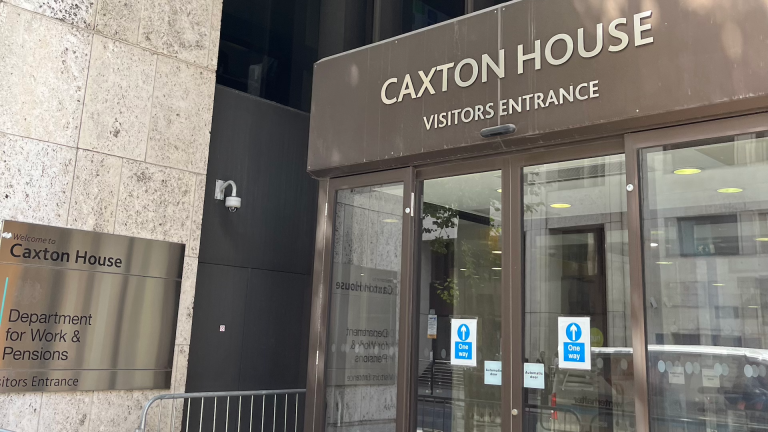A consultation, launched on Tuesday (5 September) will consider changes to work capability assessment so “they better reflect the modern world of work and the opportunities more readily available to disabled people”.
Anela Anwar, chief executive of the anti-poverty charity Z2K said: “Disabled people are already disproportionately likely to be in poverty, and these proposals will only make this worse. The Health and Disability White Paper recognised that the work capability assessment is not fit for purpose – yet DWP is now consulting on plans to make it even stricter.
“This will inevitably lead to seriously ill and disabled people losing vital income, and being forced to look for work they can’t do or be sanctioned. Government must think again and provide financial stability and support to seriously ill and disabled people on low incomes, not yet more cuts and threats.”
The consultation’s proposals include reflecting “improved employer support in recent years for flexible and home working” – meaning a person with a disability is more likely to be approved as ‘fit to work’ during a work capability assessment.
It will also review the ‘substantial risk’ rule which, for example, protects people with mental health conditions in cases where work would put them at risk.
Sarah White, head of policy at national disability charity Sense, said: “Everyone should be able to work if they want to work, but this latest government move to make changes to the assessment process could cause huge anxiety for disabled people up and down the country.
Advertising helps fund Big Issue’s mission to end poverty
“We’re seriously concerned that if the government does overhaul its assessment process without putting any additional support in place, then disabled people are just going to be put under more pressure to find work, without having the support they need to do so.”
Iain Porter, a senior policy advisor at the Joseph Rowntree Foundation, tweeted: “The effect of these changes? Probably to make it less likely that people will be assessed as having ‘limited capability for work-related activity’ (LCWRA).
“The work capability assessment is a high stakes assessment for disabled people and people with health conditions who need our social security safety net to support them through what can be incredibly difficult times
“Tightening work capability assessment criteria will mean more disabled and sick people become subject to conditions on looking or preparing for work, at risk of being sanctioned and losing their benefit if they fail to comply.
“The stated aims behind today’s announcement – more support to help people into work where they want it – are positive. It’s not right that disabled people who want to work don’t currently get the level of support they should, and are essentially written off by DWP.
“But, improving support could be done without necessarily changing work capability assessment criteria. And these changes need to be handled very carefully to avoid disabled people losing the financial safety net they need.
Advertising helps fund Big Issue’s mission to end poverty
“And unfortunately, given recent sounds that treasury is looking for ways to cut spending, the suspicion is that the real aim of these proposals is simply to cut projected expenditure at the next budget – not a good basis for genuine improvements for disabled people.”
The work and pensions secretary Mel Stride said: “Health assessments haven’t been reviewed in more than a decade and don’t reflect the realities of the world of work today. That’s why we’re consulting on reforms which will mean that many of those currently excluded from the labour market can realise their ambition of working.
“Anyone helped towards work through these proposals would receive appropriate support tailored to their individual circumstances, allowing them to safely access the life-changing impacts that work can provide.”
There are also plans to update the categories in the work capability assessment. These categories are designed to determine what activity people can do and how that affects their ability to work, which then informs assessors’ decisions on what additional financial support people can receive through their benefits, and if claimants need to do anything to prepare themselves for work.
These proposed changes are due to come into force in 2025. After that, the government will proceed with plans to scrap the work capability assessments. People will instead be assessed for a new health element of universal credit during personal independence payment (PIP) assessments.
White added: “We want people to get the right support to find and stay in work when it’s right for them. But Sense’s research shows that there just isn’t the support in place currently – half of jobseekers with complex disabilities don’t feel they have the support and equipment they need to look for a job. Almost a third (31%) of jobseekers with complex disabilities said that having assistive technology in their jobcentre would help them find work, yet no job centres across the country have this available.
Advertising helps fund Big Issue’s mission to end poverty
“Today’s proposed changes also make the assumption that employers are going to be accommodating of their disabled employees. Sadly this often isn’t the case – more than half (52%) of people with complex disabilities in work have told us they’ve taken on a less challenging job because their needs as a disabled person are simply not being met.
“If the government is serious about getting more people into work, then it needs to make sure the right support is in place. Changing assessments without investing in assistive technology, training for assessors, and holding employers to account is just shifting the issues onto disabled people rather than creating lasting change.”
Do you have a story to tell or opinions to share about this? We want to hear from you. Get in touch and tell us more.










